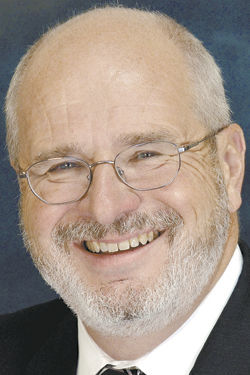
By John Krull
That September Tuesday morning, I drove my children to their preschool.
They were young then — my daughter a toddler and my son just a few months old. We were all younger then.
I didn’t have the radio on. I told jokes and played nonsense word games with my daughter as we drove to the preschool.
After I dropped them off, giving each a hug and a kiss as I left, I got back into the car. I still didn’t turn the radio on.
In those days, I was the executive director of what was then the Indiana Civil Liberties Union. Some things were the same as they are now. The beginning of September meant the onset of the prime charitable giving season, the time when not-for-profits made or broke their budgets.
I spent my drive from preschool to the office on the phone, setting up meetings and donor visits. I had a busy calendar that day. There wasn’t likely to be any other time to deal with my call list.
Cell phones then weren’t miniature computers — at least mine wasn’t — so I was cut off from the news on my commute.
When I got to my office, the ICLU’s legal director, Ken Falk, knocked on my door.
“Have you heard?” he asked. “A plane just flew into the World Trade Center.”
I asked him if anyone knew the cause. Did the pilot have a heart attack?
He said he didn’t know and headed back into his office.
A few minutes later, he returned.
“Another plane just flew into the other tower,” he said.
We were silent for a long moment.
“We’re at war,” I said.
I’d been in New York just a few days earlier for meetings. The national ACLU’s offices were in the financial district. During a break, I strolled past the World Trade Center.
I sat in my office wondering how many people I’d passed on that afternoon amble now were dead.
My wife and I talked. She was going to pick up the kids. She wanted them home, close to their parents. I told her I’d get there as soon as I could.
Calls came in, cancelling appointments. Everything — courts, government office buildings, businesses — was closing for the day. My calendar cleared.
The only thing that remained was a lunch on the north side with a longtime ICLU supporter.
As I drove to it, I had the radio on, listening to updates as the day’s horrors became clear. The city had turned into a ghost town, the streets empty, sidewalks deserted.
Lunch was a morose occasion.
We were the only customers in the restaurant, which was one of the few still open. We picked at our food and kept looking at the TV playing in the corner.
At one point, my lunch companion shook her head and said, almost to herself:
“I never thought this could happen. Elsewhere, but not here. Not to us.”
There didn’t seem much point in lingering over our meals. We paid the check and left.
I went home.
My wife is from New York. Much of her family still lived there. She placed call after call, trying to find out if her parents, both then in their 70s, were all right.
We had two TVs going, one turned to the news, the other playing videotapes — it was not yet a completely digital world — of Maurice Sendak’s Little Bear. We took turns, one of us watching the news, the other watching with our children as Little Bear discovered a world that suddenly seemed comfortingly gentle and generous.
Finally, we heard about my in-laws. In a city that had all but shut down, they walked from their offices in midtown to their home some 50 blocks away. The power was out at their building, and they’d had to walk up 15 flights of stairs to get to their darkened apartment.
But they were safe.
That night, my wife and I held our children especially close. We knew even then the world they were going to grow into had become a much more dangerous and darker place.
Over the years, we’ve given away almost all the videotapes our kids watched when they were small.
For some reason, we’ve never been able to part with those Little Bear tapes.
